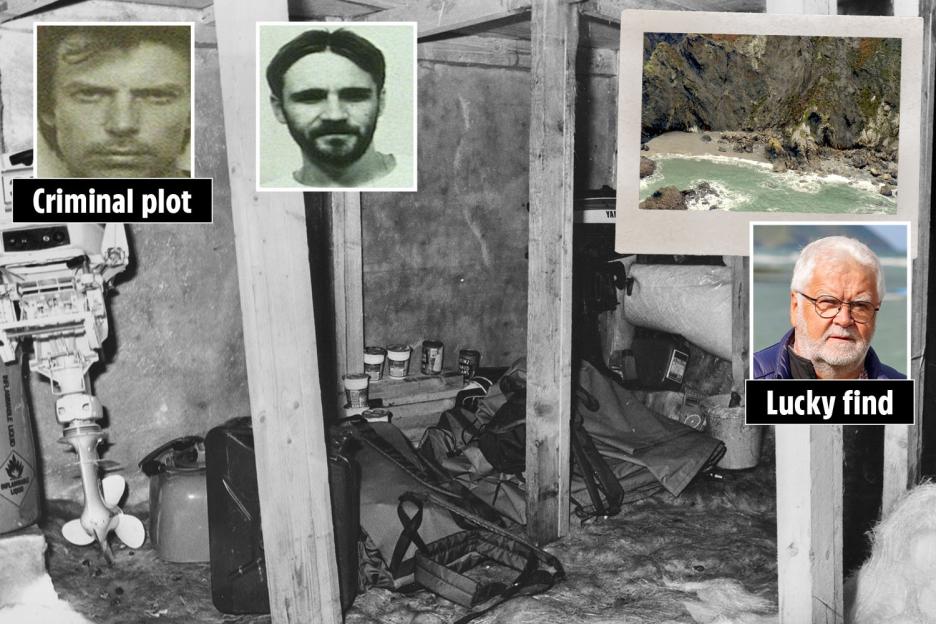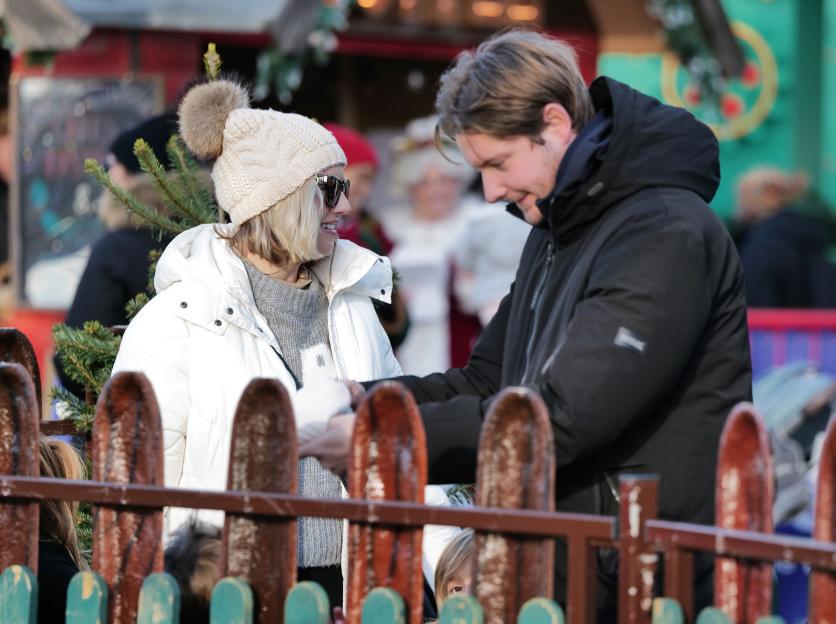STARING up from beneath a pile of stones on a remote Welsh beach, farmer Peter Smith saw something that made him stop dead in his tracks.
What he was about to uncover would blow open one of Britain’s most daring drug-smuggling plots.
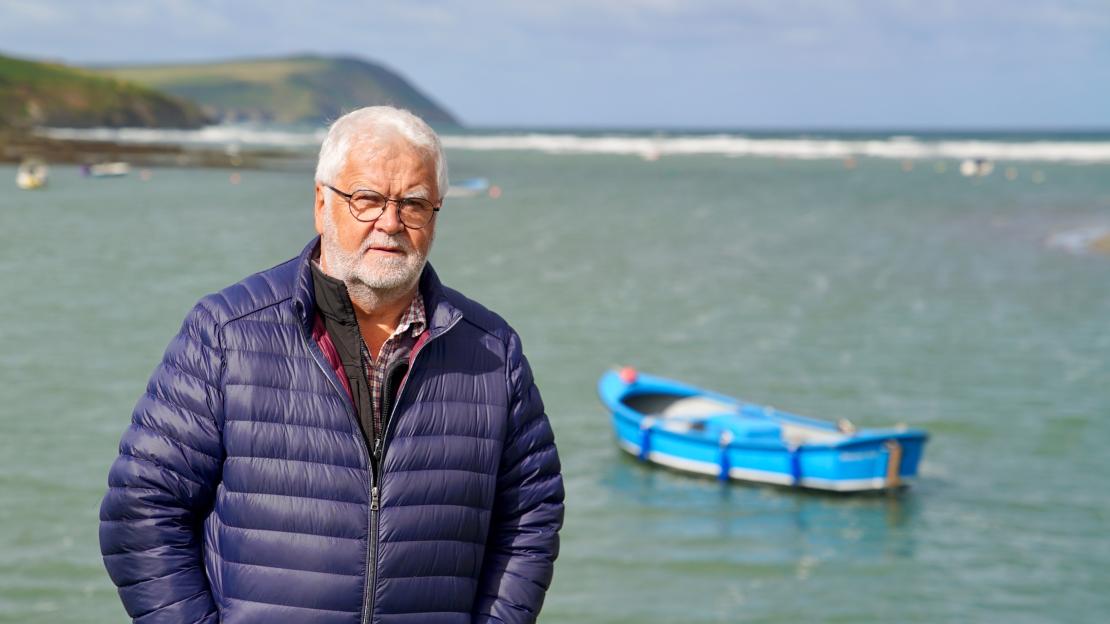 Peter Smith had been drafted in by police to help search the area after reports of strange activity in neighbouring covesCredit: BBC
Peter Smith had been drafted in by police to help search the area after reports of strange activity in neighbouring covesCredit: BBC
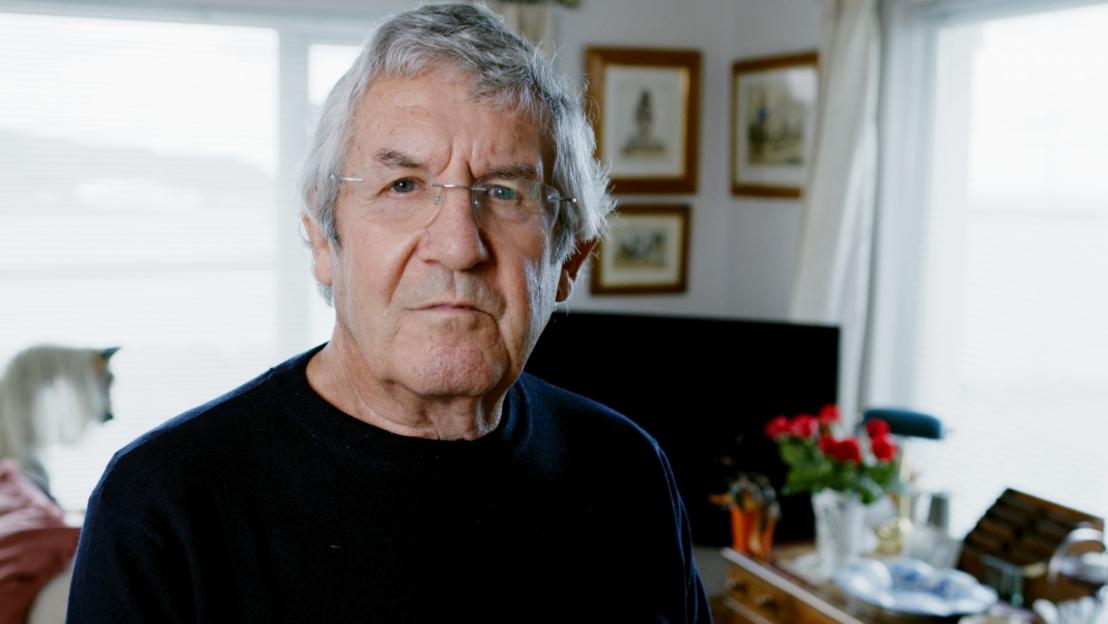 Berian Williams was a police sergeant and former drugs squad officer based in the remote coastal town of FishguardCredit: BBC
Berian Williams was a police sergeant and former drugs squad officer based in the remote coastal town of FishguardCredit: BBC
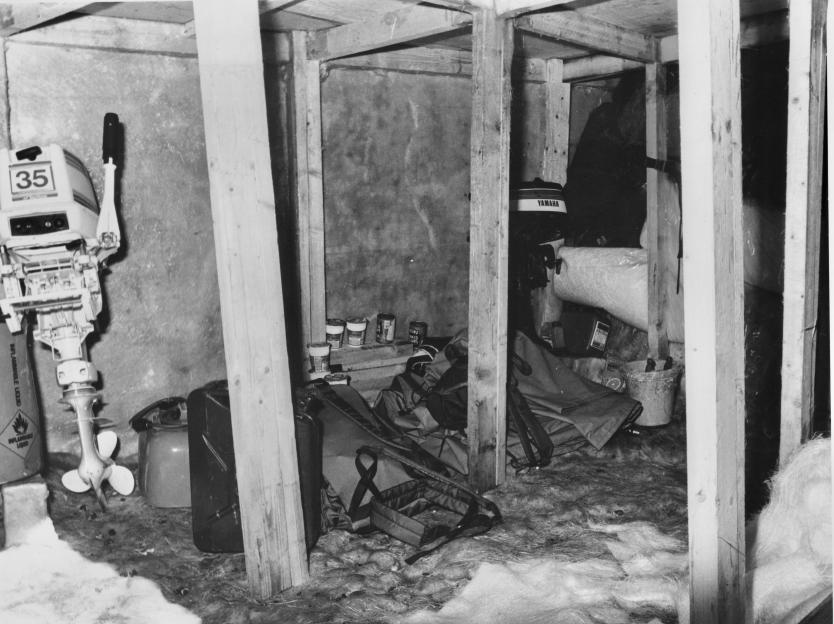 Inboard motorboat engines were found inside the bunkerCredit: Don Evans / BBC Cymru Wales
Inboard motorboat engines were found inside the bunkerCredit: Don Evans / BBC Cymru Wales
It would also trigger an international police probe stretching from Pembrokeshire to , the Middle East, and even involving Interpol.
Peter, who was 23 at the time, tells The Sun: “I just remember spotting this piece of wood, totally by chance.
“When I brushed away the stones there was a yacht hatch under it. Of all the things to find on a remote beach like that, I just thought, ‘What the hell is going on?’.”
Standing beside him was a group that included Berian Williams, then 37, a police sergeant and former drugs squad officer based in the remote coastal town of Fishguard, Pembrokeshire.
Berian, who was 36, says: “I remember cupping my hands over my face because the sun was reflecting on the hatch.
“When I looked through, I said, ‘Bloody hell there’s a ladder going down here!’ It was the strangest thing that has ever happened to me.”
Inside, Police found a secret bunker – a man-made cave that was “like something out of Thunderbirds,” says Peter.
Berian remembers: “The walls were covered in fibreglass resin and supported by wood.
“There was boating equipment, an outboard motor, a stand for another, a rucksack, cans of food… even empty Pot Noodles.
“We wondered: ‘Was it the? The Navy? The ?’ But when our seniors checked and said ‘no’, we knew something suspicious was happening.”
Both men appear in a new One two-part series, Cove: Operation Seal Bay which retells the extraordinary story of how a tight-knit Welsh community exposed one of the world’s biggest drug trafficking rings.
Their discovery came in June 1983, on a remote beach called Traeth Cell Hywel, south of Ceibwr Bay, between Cardigan and Fishguard.
Peter – a volunteer, ancillary coastguard, had been drafted in by police to help search the area after reports of strange activity in neighbouring coves.
Berian, now 78, says: “We’d already found this tarpaulin sheet with building materials – wood, hammers, brushes, saws… a rucksack.”
Peter says: “The police asked me to help log everything because, due to my farming experience, I knew what most of the items were.”
A shocking discovery
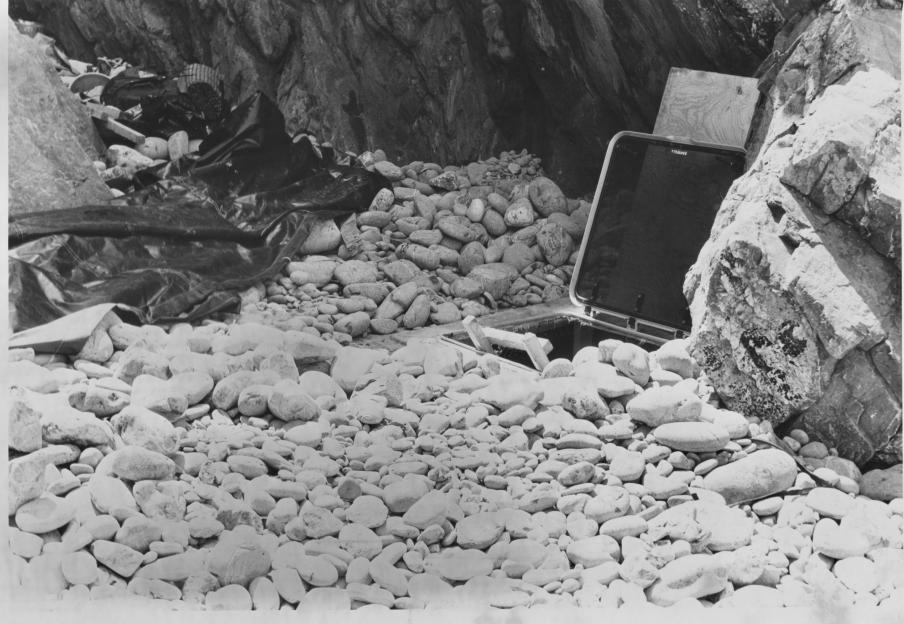 The hatch leading to the underground bunkerCredit: Don Evans / BBC Cymru Wales
The hatch leading to the underground bunkerCredit: Don Evans / BBC Cymru Wales
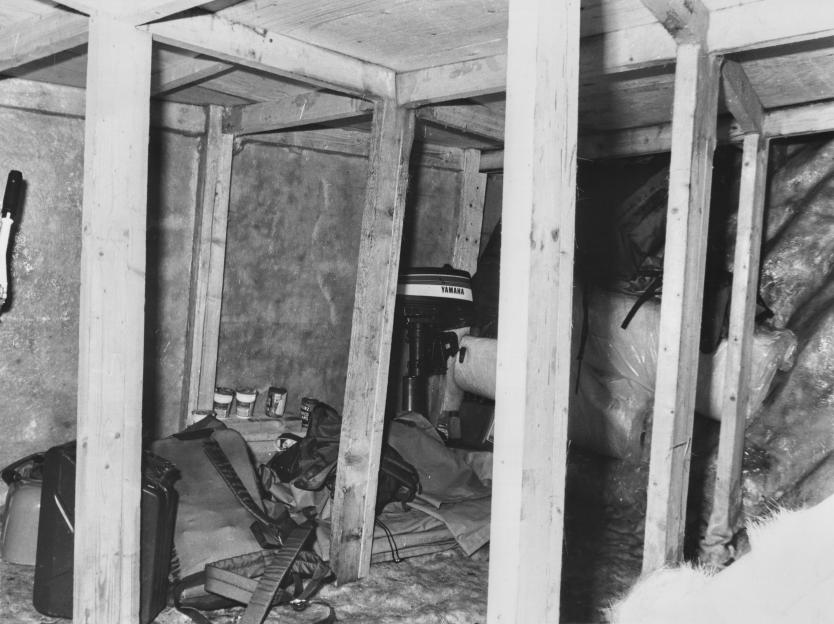 Inside the bunker was boating equipment, an outboard motor, a stand for another, a rucksack, and cans of foodCredit: Don Evans / BBC Cymru Wales
Inside the bunker was boating equipment, an outboard motor, a stand for another, a rucksack, and cans of foodCredit: Don Evans / BBC Cymru Wales
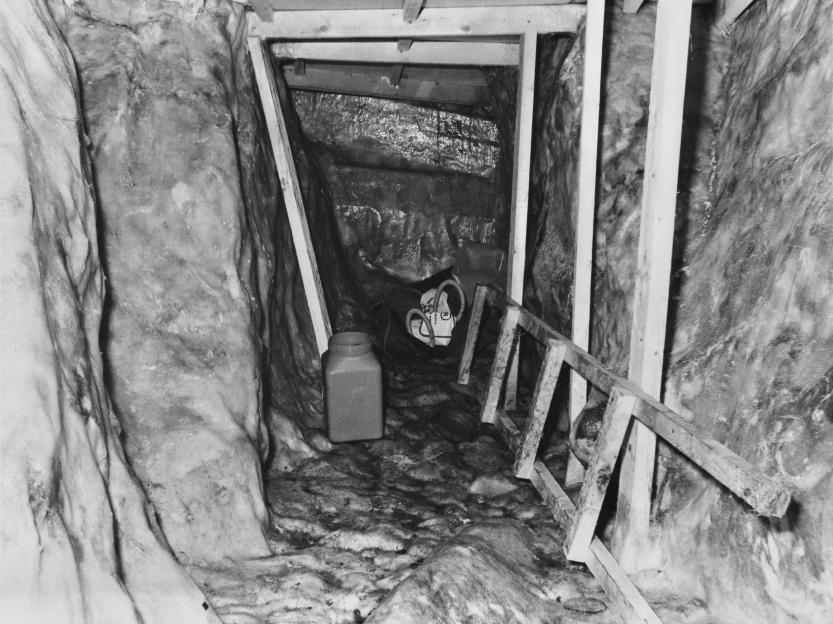 The walls were covered in fibreglass resin and supported by woodCredit: Don Evans / BBC Cymru Wales
The walls were covered in fibreglass resin and supported by woodCredit: Don Evans / BBC Cymru Wales
Then Peter spotted the clean wood, brushed it away, lifted the plyboard and revealed the yacht hatch.
Berian says: “At first I thought someone had buried something but, I wasn’t expecting what we did find. It was quite out of the ordinary. It didn’t blend in with the surroundings.”
With them was lifeboat volunteer John Harvard, who knew how to open the hatch properly. He later told the BBC: “There was this smell of fibreglass resin. We lifted the door. I joked it felt like a portal to another dimension.”
What police would later discover was shocking. The cave was intended as the stash point for three tonnes of cannabis, worth £7million, masterminded by British ringleader Robin Boswell and Danish actor-turned-drug-smuggler Soeren Berg-Arnbak.
It wasn’t the only bizarre goings-on in the area in recent months either.
Suspicious activity
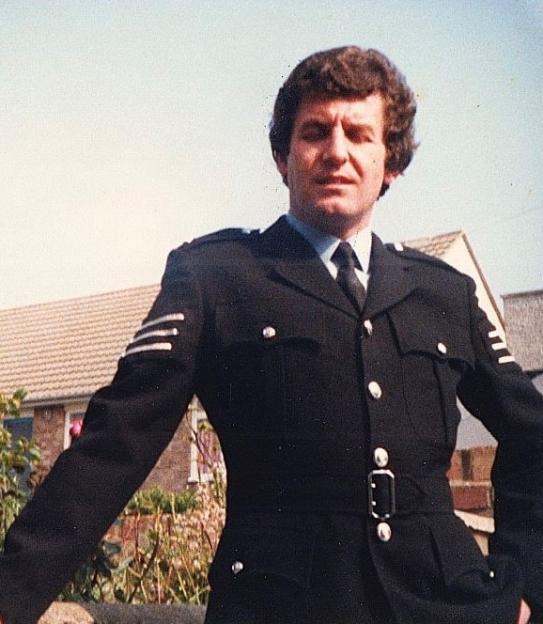 At the time, young Berian never expected to find what they didCredit: BBC
At the time, young Berian never expected to find what they didCredit: BBC
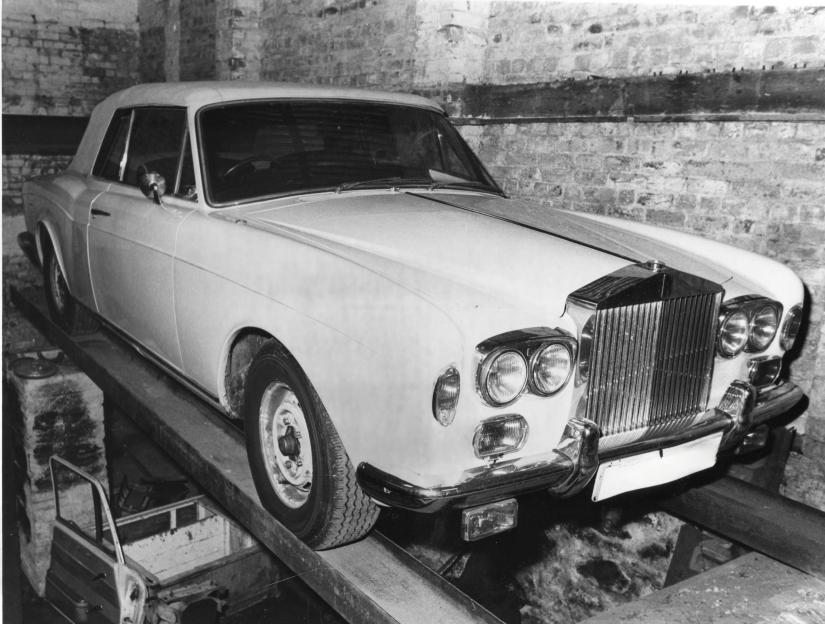 Locals reported seeing a white Rolls-RoyceCredit: Don Evans / BBC Cymru Wales
Locals reported seeing a white Rolls-RoyceCredit: Don Evans / BBC Cymru Wales
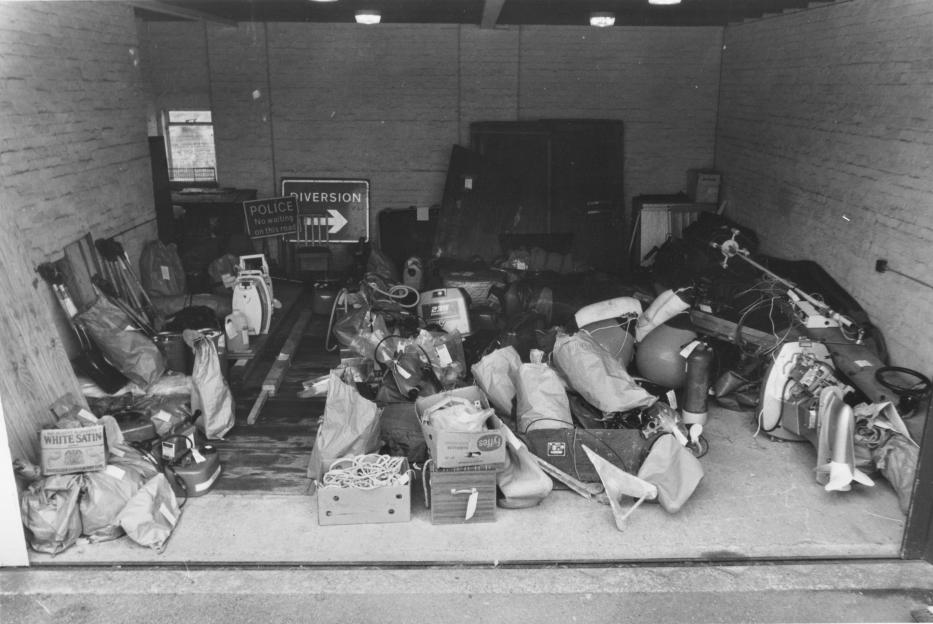 Stashes of equipment were found in the areaCredit: Don Evans / BBC Cymru Wales
Stashes of equipment were found in the areaCredit: Don Evans / BBC Cymru Wales
In November 1982, a headteacher walking his dog near Newport found a parcel washed ashore containing blocks of cannabis worth £80,000, traced back to Lebanon.
By early summer 1983, fishermen noticed their lobster pots had been tampered with and catches disappearing.
One day, a fisherman called Andy and his daughter were checking pots near Seal Bay – a remote and rugged cove only accessible by sea where seals gathered – when they spotted something odd.
Berian says: “They thought it was a rock. When they looked again, they realised it was tarpaulin. Andy went onto the beach and met a strange man who gave him a daft story about being on a secret expedition.”
Suspicious, he rang the coastguard who called Police to investigate further.
They found brand-new gear on the beach under the sheeting – outboard motors, anchors, and radio equipment – worth thousands.
Farmers on clifftops above Seal Bay also reported strangers trespassing on private land, often at odd hours.
Peter, who was one of them, says: “I saw two men on the coastal path one day. There was something strange about them but I didn’t give them any more thought until much later.
“But, looking back, bearing in mind they were quite a few miles into the coastal path, it’s that they weren’t dressed as hikers.
Everyone knew everyone, there wasn’t crime and there was a lot of trust among people back then
Berian Williams
“Everyone knew everyone, there wasn’t any and there was a lot of trust among people back then.”
Locals’ sharp eyes didn’t stop there. Reports came from Newport pubs of mysterious men splashing £50 notes – more than some locals would make in two months at the time – on extravagant meals.
Berian says: “We were told they were asking for things like Lobster Thermidor – exotic meals I’d never even heard of. One youngster behind a bar said a tip was so big his trousers nearly fell down from the weight of the coins!”
Flash cars appeared too – a , a GTI convertible, and even a white .
Berian says: “I don’t think Newport had ever seen a white Rolls-Royce before.”
It was the vigilance of trusted, local people – farmers, fishermen and pub-goers – that helped police spot the suspects and track them down.
Before long, local people had tipped police off to where these men were.
‘The man with the rubber face’
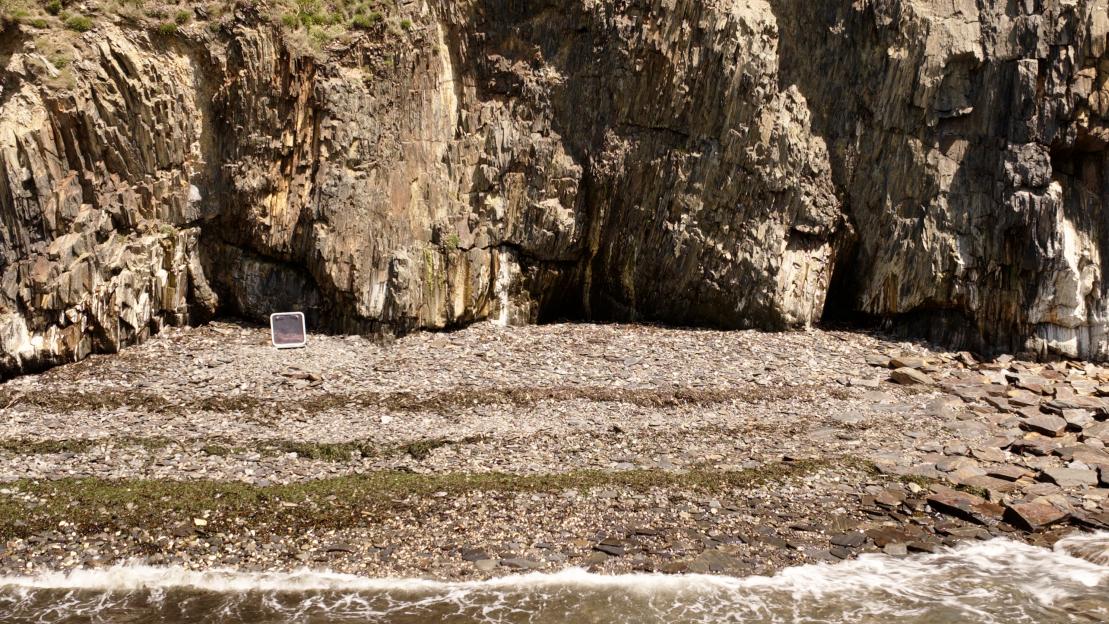 If successful, the bunker would have made Pembrokeshire the epicentre for cannabis distribution in the UKCredit: Lazerbeam Productions / BBC Cymru Wales
If successful, the bunker would have made Pembrokeshire the epicentre for cannabis distribution in the UKCredit: Lazerbeam Productions / BBC Cymru Wales
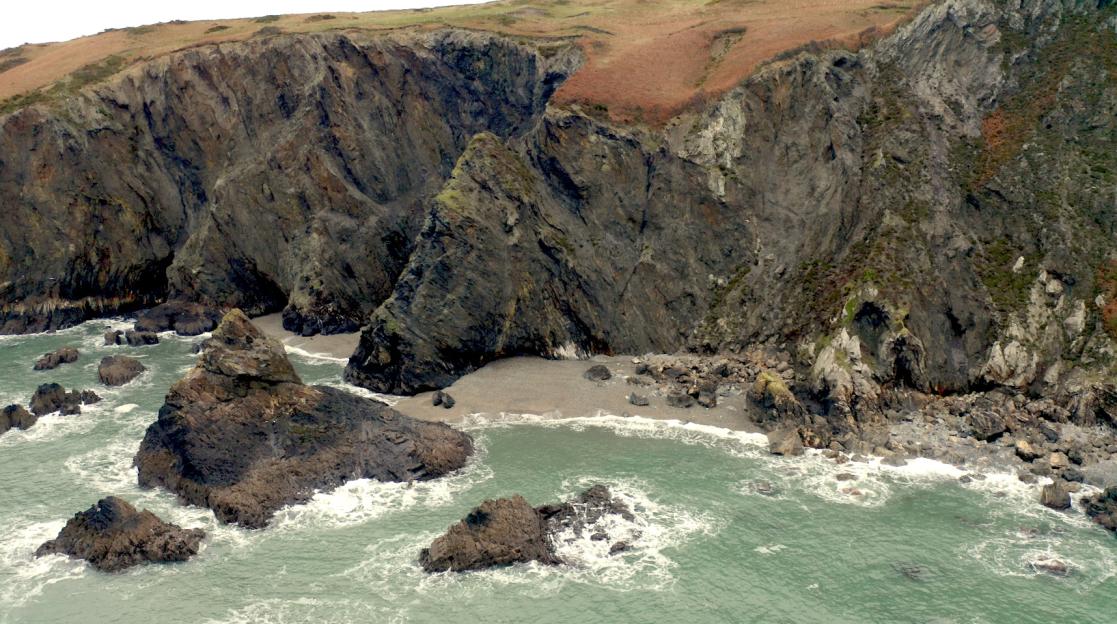 The remote beach Pwll Coch – known locally as Seal Bay – became the centre of the investigationCredit: Lazerbeam Productions / BBC Cymru Wales
The remote beach Pwll Coch – known locally as Seal Bay – became the centre of the investigationCredit: Lazerbeam Productions / BBC Cymru Wales
One – called Robin Boswell – was found hiding in grass.
Another, wearing a white safari suit, was also reported.
Police arrested a second man, Kenneth Dewar, speeding through Newport.
Both claimed no connection, yet both had fibreglass resin on their boots – like the resin from the underground bunker.
They also gave police the same address despite saying they didn’t know each other.
Soon after, another man was caught sprinting across fields with a rucksack – claiming to be a Sam Spanggaard from Denmark on a trip.
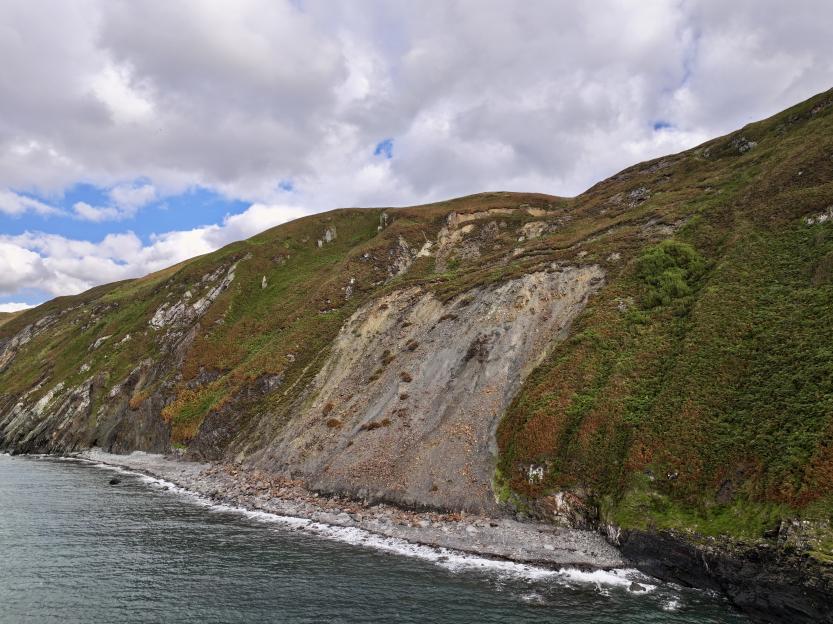 The bunker was dug underneath the ground along a stretch of west Wales coastline near MoylgroveCredit: Lazerbeam Productions / BBC Cymru Wales
The bunker was dug underneath the ground along a stretch of west Wales coastline near MoylgroveCredit: Lazerbeam Productions / BBC Cymru Wales
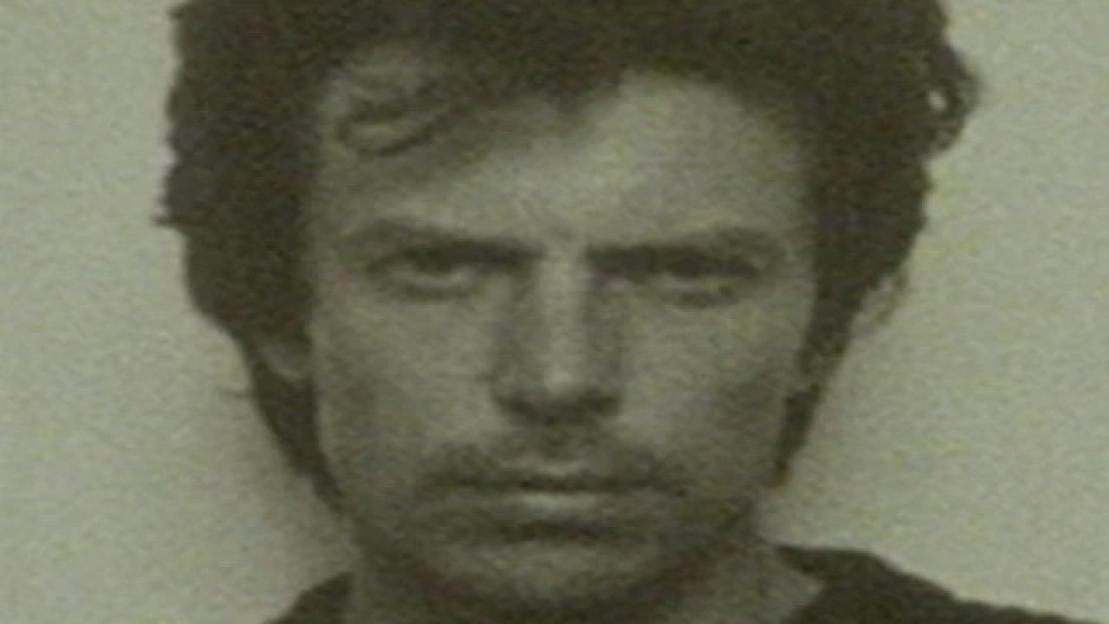 Robin Boswell gave police 17 false names and addressesCredit: BBC
Robin Boswell gave police 17 false names and addressesCredit: BBC
Copenhagen police confirmed that the real Sam had had his ID stolen a year earlier. His true identity was Soeren Berg-Arnbak – an international drug smuggler, prison escapee and one of Europe’s most wanted men.
Interpol confirmed his background. He had been arrested in 1970, sentenced to four and a half years, escaped after one and a half years, and had been on the run for eleven years.
Nicknamed “the man with the rubber face,” Soren had lived a millionaire lifestyle, with villas in and , a rumoured castle in Genoa, and a luxury yacht with a private chef.
Police were especially drawn to the radio equipment in Soren’s belongings. They realised it had been activated and had received a crackly message from offshore from a “mother ship” carrying the drugs.
The message said: “This is Mother. I want to come in and get this dirt off my hands.” It confirmed that a massive cannabis shipment was waiting offshore, ready to land in Wales. But, reluctant to blow their cover and not knowing how to respond to the message, the radio soon went silent.
Further into Robin Boswell also revealed he was already on the radar of UK customs.
He was the son of a wealthy officer and educated at Marlborough College.
A sailor by trade, he had long-standing links to Nepal and was suspected of shipping cannabis before, though never convicted.
Police in London were watching Boswell closely.
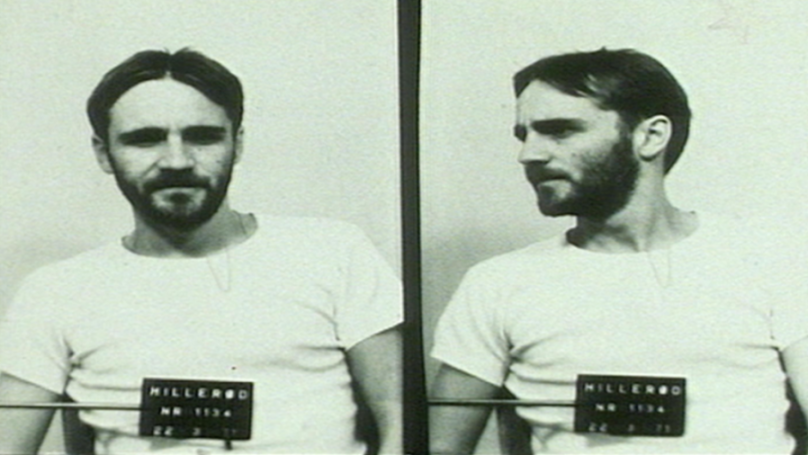 Soeren Berg-Arnbak was one of Europe’s most wanted drug dealersCredit: BBC
Soeren Berg-Arnbak was one of Europe’s most wanted drug dealersCredit: BBC
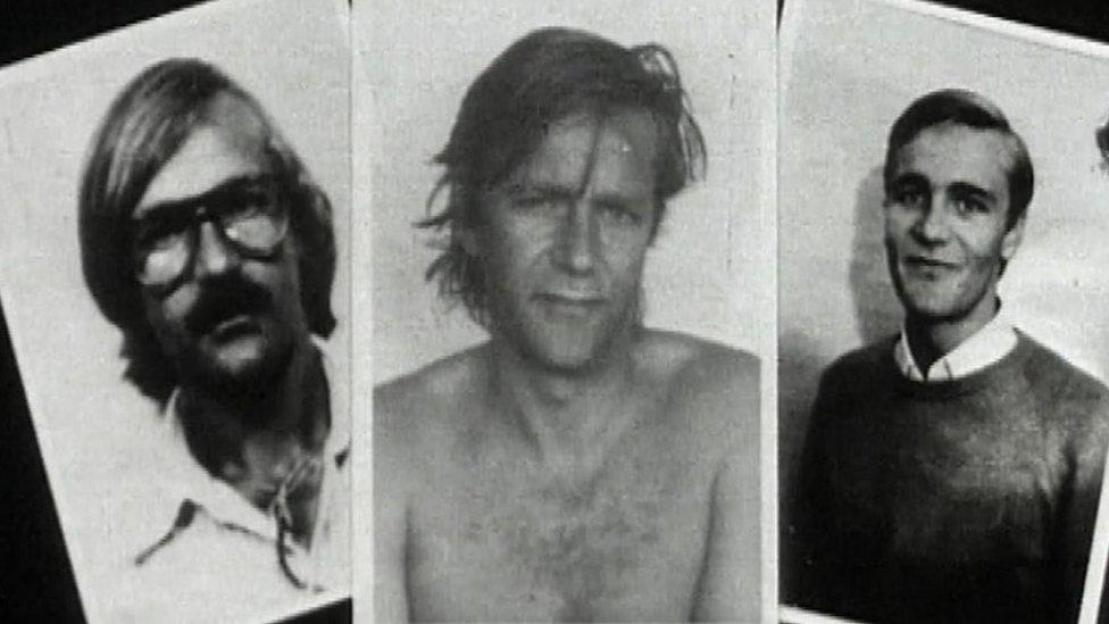 The Danish drug smuggler used many disguisesCredit: BBC
The Danish drug smuggler used many disguisesCredit: BBC
‘Safari Jo’
Another man linked to him, Donald Henry Jones, known as “Safari Jo,” was already under investigation for dealing cocaine. He lived with Robin’s ex-wife Susan, then 41, in a luxury London mansion and was the man seen in Wales driving a White Rolls Royce.
When London officers raided a safety deposit box, they found thousands of pounds worth of cocaine. Donald was arrested and brought back to Wales. He insisted the drugs were for personal use, but his possessions told another story.
Berian recalls being asked to search Donald’s things with a former colleague.
He says: “There was a shoulder bag with a thick back panel. I found a flap and velcro. Inside were documents – an exercise book describing a voyage from , the rough seas, everything.
“It showed Robin and Susan were involved in smuggling. There was also a telegram from Baalbek in Lebanon.” The telegram linked Donald to the Jaafar clan – a world renowned drug smuggling group.
I couldn’t believe it. It was stunning – a whole cave they’d built under the pebbles
Jim
Susan was released, but more evidence was unearthed in – documents, distribution lists, and deeds to a secret mansion police believed was the gang’s HQ. She was rearrested and eventually named a local fair-haired Welshman involved in the plot. He is given the false name, Jim, in the documentary to protect his identity.
Jim lived in a caravan in a remote area. Police brought him in, and over 36 hours he gave them the breakthrough they needed. His testimony is heard for the first time in the BBC documentary, though voiced by an actor.
Jim tells the programme: “Robin turned up at my caravan one night. He said, ‘I’ve got some work.’ The next day we went to a farm in Hampshire – a really nice place. He had inflatable boats, engines, all sorts of stuff. He said he wanted (the operation) running.”
Jim helped move the gear to West Wales. He recalls seeing the cave: “I couldn’t believe it. It was stunning – a whole cave they’d built under the pebbles.”
He explained the plan: “The big boat would pick up the cannabis quick and get back in quick. Then they’d unload it into the cave.”
The confession
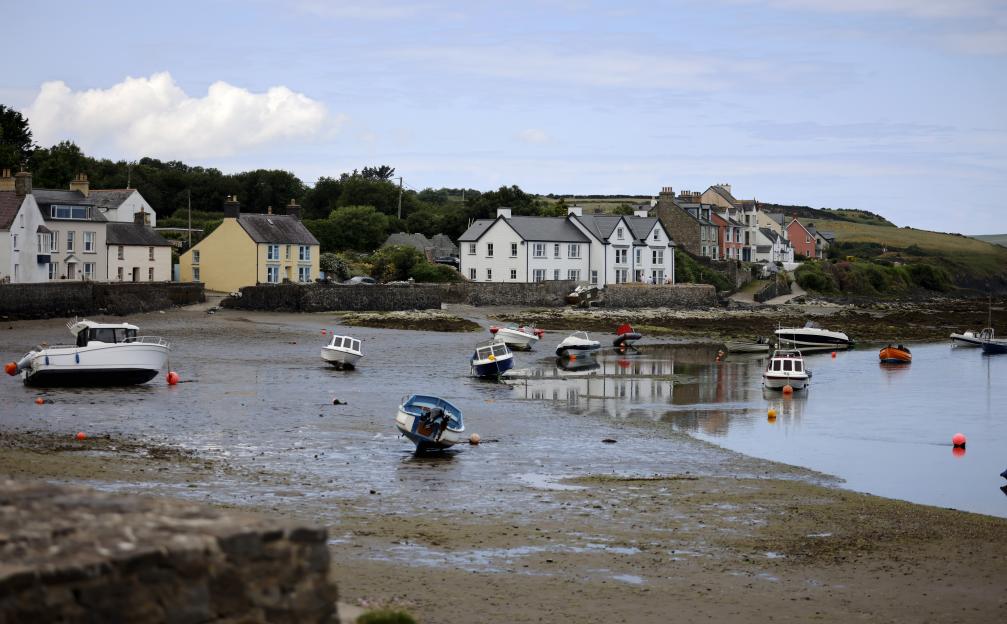 The quiet town of Newport was rocked by the revelationsCredit: media Wales.
The quiet town of Newport was rocked by the revelationsCredit: media Wales.
Jim confessed that 3.5 tonnes of cannabis were coming in on a boat called The Mother Goose. Police already suspected Robin, Soeren, Susan, and Ken but Jim’s confession tied everything together.
Despite the lack of physical drugs, the evidence was overwhelming.
In 1984, the Operation Seal Bay trial began at Crown Court.
Shortly before it started, Ken, Susan, and Jim all changed their pleas to guilty, meaning Jim’s damning testimony was never heard in court.
Donald Holmes stood trial and crumbled when confronted with the evidence from his bag. Soeren refused to testify.
Robin did – claiming he had made his fortune from discovering gold bullion, a story suspiciously similar to one in a book police later recognised, titled Iron Coffins.
After 385 days from the cave’s discovery, the jury returned their verdict. All were found guilty. Robin Boswell was sentenced to ten years in prison, Soeren Berg-Arnbak to eight years, Ken Dewar to five years, and Susan Boswell received an 18-month sentence.
Four decades on, Berian still lives in Fishguard, overlooking the harbour where the case unfolded. The secret cave – the one that set everything in motion – remains one of Wales’ most extraordinary crime discoveries.
Peter, now 66 and semi-retired, says: “I think for the people still involved, we’ll never forget it.”
Both episodes of Cannabis Cove: Operation Seal Bay are available on iPlayer from December 4.
Episode one will also air on BBC One Wales on December 4 and episode two will air on BBC One Wales on December 11.
